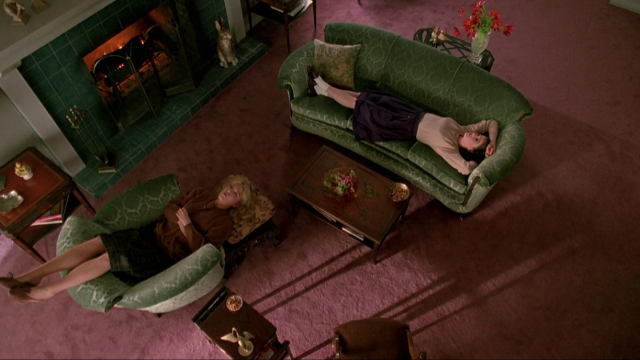
Twin Peaks: Fire Walk with Me
This discombobulation is tedious, yet deeply disturbing in a way that superficial mainstream horrors never are. A prequel to the ridiculous, brilliant, genre-mashing soap(ernatural) opera that is David Lynch and Mark Frost’s abruptly cancelled series, Fire Walk with Me is initially defined in opposition to its predecessor’s secretive-yet-hearty locale. Unpleasant characters fail to connect as they traverse blank offices, musty diners and trailer parks of decay.
Investigating the murder prior to Laura Palmer’s, Chris Isaak and Kiefer Sutherland’s federal agents disappear before we’re given the anticipated insight into the whole shebang. There’s some dots to join, but they deepen the mystery rather than resolve anything. Excluding Lynch’s Gordon Cole, it’s nearly half an hour before we see a familiar face; a stronger, brief segment for fan favourite Dale Cooper gives way to the anal foreshadowing that anyone who’s seen the Star Wars prequels is deeply familiar with. Finally, the narrative proper – the last week of Laura – which serves to unsettle constructions of small town Americana and the good girl Prom Queen, but tiresomely repeats what we already knew via an organically developed mystery backstory.
Things become a lot more interesting when we’re given the experience of a girl discovering the identity of her rapist. I’d compare the remainder of the film to following Orpheus into hell, and the film is certainly better on its own terms, themes and cultural signification than as a puzzle to attempt to solve. And yet, being inextricable, its fundamental weakness gives an unknowable quality to the greater mythology, serves to unsettle all the more. Which is a good thing.
Awesome series.
Was the movie made after the series began? Like, it’s not the pilot episode, right?
Yeah, it was made after the series finished. Came out ’92, series was ’90-91.
(Though I read the other day Mulholland Drive was built from a tv pilot by Lynch that was rejected)
And was a fucking insane movie.